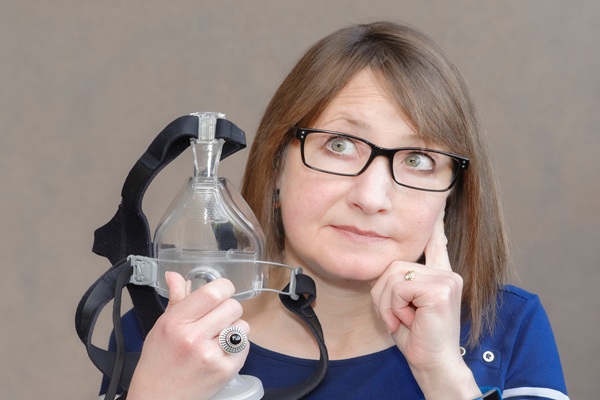Dental Implants After Traumatic Injury

A dental specialist will often recommend dental implant surgery to a patient who has suffered traumatic injury and tooth loss. Such a person will have one overarching goal: To restore the health and aesthetics of their mouth to reverse the effects of the trauma.
That is where dental implants come in. A dental implant is a permanent replacement for a lost tooth. The implant is placed in the jaw, where it fuses with the surrounding bone tissue. It acts as the artificial root of the artificial tooth. More specifically, it acts as a support for a dental crown, or a set of implant-supported dentures.
Most patients who need procedures to replace lost teeth after traumatic injury also need additional treatment for the rest of their injuries. If you are one of those, you are probably wondering how dental implants fit in with the rest of your treatment plan.
Here is how:
Treating traumatic injury to the mouth with a dental implant
A blow to the mouth can happen as a result of an accident, a sports injury or as a result of violence. How a dentist treats an individual will depend on a number of factors:
1. The extent and severity of the trauma
Consider a situation where a person gets into a serious car accident or suffers an especially nasty fall. This person will have multiple injuries in multiple areas of the mouth. If the trauma to the mouth is really bad, the patient would likely have to deal with:
- Soft tissue injury to the lips, tongue, inner cheeks, palate and/or the gums
- Fractured, broken or lost teeth
- Fractured or broken bones
In such a situation, a maxillofacial surgeon, or another type of dental specialist, will schedule dental implant surgery after they treat the rest of the injuries. In most cases, a treatment plan for traumatic injuries will start by dealing with the urgent injuries, like injured bone tissue and soft tissue.
Only after the patient heals (to a certain level) will the doctor start the process of placing dental implants.
In contrast, a patient who only suffers a missing tooth and nothing else can get dental implants immediately. Assuming they are a good candidate for the procedure.
2. The patient's age
Children get into a lot of scrapes, which is why they make up a large number of patients with traumatic mouth injuries. Sometimes, they happen to lose one or more of their permanent teeth. The thing with children is that their bones, including their jawbones, are still growing. Making it a challenge to place a dental implant into a jaw that is continually growing.
For this reason, dental specialists choose more conservative tooth replacement methods for young children. They also craft treatment plans to mitigate potential bone loss and atrophy that could happen as a result of missing teeth.
3. Whether or not the patient has an underlying health condition
Some patients have health conditions that make them poor candidates for dental implants. People with bleeding disorders or weakened immune systems should avoid elective surgeries whenever they can.
The same goes for patients who take medication that could cause complications during and after surgery.
Also, people that lack bone mass and bone density are poor candidates for dental implant surgery, unless they are healthy enough to get a bone graft. If they are not, they too will have to settle for a more conservative way to replace their missing teeth.
Talk to our specialist to find out if dental implants can replace your missing teeth
Our skilled and experienced dentist wants to hear from you. They will perform an in-depth evaluation and get your input before they craft a treatment plan that is tailor-made to meet your needs. Call us today and together, we will get your smile back.
Let's get started…
Request an appointment here: https://gallodental.com or call GDC Smiles at (770) 504-5725 for an appointment in our Gainesville office.
Check out what others are saying about our services on Yelp: Read our Yelp reviews.
Recent Posts
Sleep apnea is a serious sleep disorder that affects millions of individuals worldwide. It occurs when breathing repeatedly stops and starts during sleep, disrupting rest and potentially causing long-term health consequences. Many people are unaware that a general dentist plays a key role in diagnosing and managing sleep apnea, particularly with non-invasive treatment solutions. By…
No matter your stage in life, maintaining a healthy smile is important. Regular visits to a family dentist provide comprehensive care for people of all ages, ensuring a lifetime of healthy smiles. These routine check-ups address immediate concerns, can prevent future dental issues, and provide you and your family with the information you need to…
ClearCorrect® is a teeth-straightening system that utilizes clear aligners to move teeth into a more appropriate position. There are many benefits to choosing ClearCorrect treatment. It is helpful to understand exactly what it is, how the treatment process works, and what cosmetic and oral health concerns ClearCorrect fixes.Everyone deserves a beautiful, properly aligned smile that…
Dental anxiety is a common issue that affects people of all ages. This term refers to the fear, anxiety, or stress of dental visits. There are several misconceptions about dental anxiety, leading to additional fear or avoidance of necessary dental care. By separating facts from fiction, patients can better understand this condition and go to…


